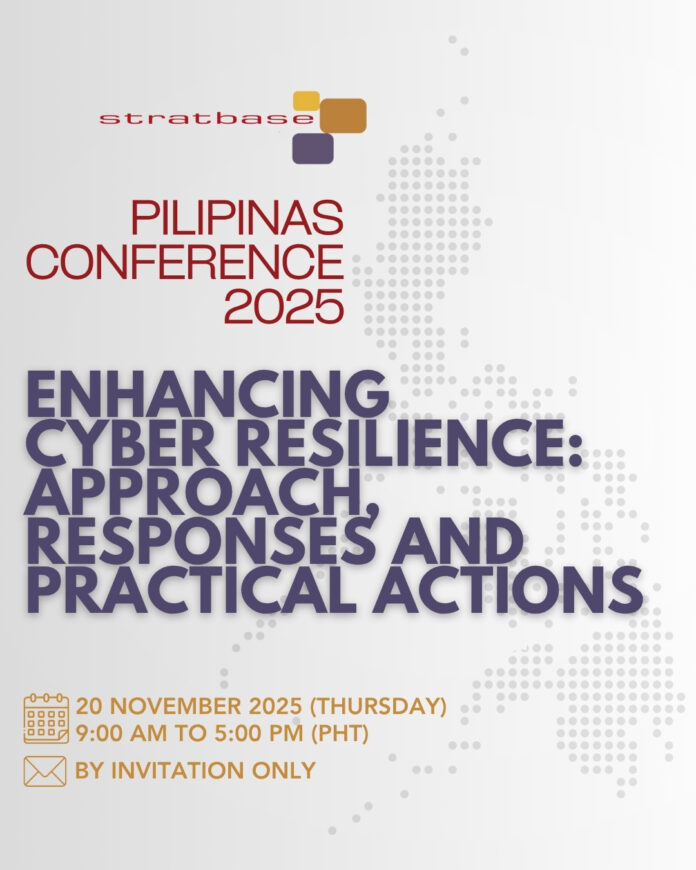The Stratbase Institute and the Embassy of Japan in the Philippines opened the first day of the Pilipinas Conference 2025 with a high-level forum on cyber resilience at The Peninsula Manila. Government leaders, diplomats, and cybersecurity specialists from across the Indo-Pacific tackled rising digital threats and urged coordinated regional action.
Department of Information and Communications Technology Secretary Henry Aguda raised alarm over the country’s slipping digital performance. He pointed to the decline of the digital economy to 8.4 percent of GDP in 2024 and called it “unacceptable,” stressing that digital disruption and cybersecurity are now “survival issues.”
The digital economy as a percent of GDP has declined from 9.6 percent in 2021, 9.4 percent in 2022, 8.4 percent in 2023 but was initially estimated at 8.5 percent last year by the Philippine Statistics Authority.
Aguda outlined the government’s push for faster infrastructure rollout, broader digital adoption, and stronger governance. He urged collective effort to drive “hyper-exponential growth,” saying skeptics should “watch us work.”
Stratbase Institute president Victor Andres “Dindo” Manhit said digital threats—such as deepfakes and foreign information manipulation—are reshaping security risks. He emphasized that “cybersecurity is not only about technology; it is about trust,” adding that protecting the digital space is a shared responsibility among government, the private sector, and international partners.
Japanese Ambassador Endo Kazuya highlighted the rapid escalation of cyberattacks worldwide. Japan’s monitoring showed cyberattack-related communications rising from 63 billion packets in 2015 to 686 billion in 2024. He stressed that “no single nation” can manage cyber threats alone and called for deeper international cooperation and confidence-building.
Kazuya cited Japan’s continued support for ASEAN and the Philippines, including training programs that have helped develop thousands of cybersecurity professionals. He reaffirmed Japan’s commitment to helping strengthen the Philippines’ cyber defenses.
Panel discussions brought together experts and diplomats—including representatives from Australia, Canada, and the European Union—who underscored the need for better intelligence-sharing, stronger incident-response coordination, and closer public-private collaboration to counter cross-border cyber threats.
The forum marked the start of broader discussions at the Pilipinas Conference 2025 on how nations can bolster resilience amid fast-evolving digital risks.







